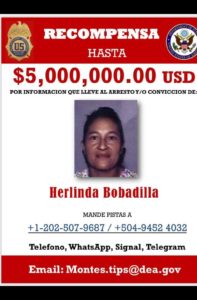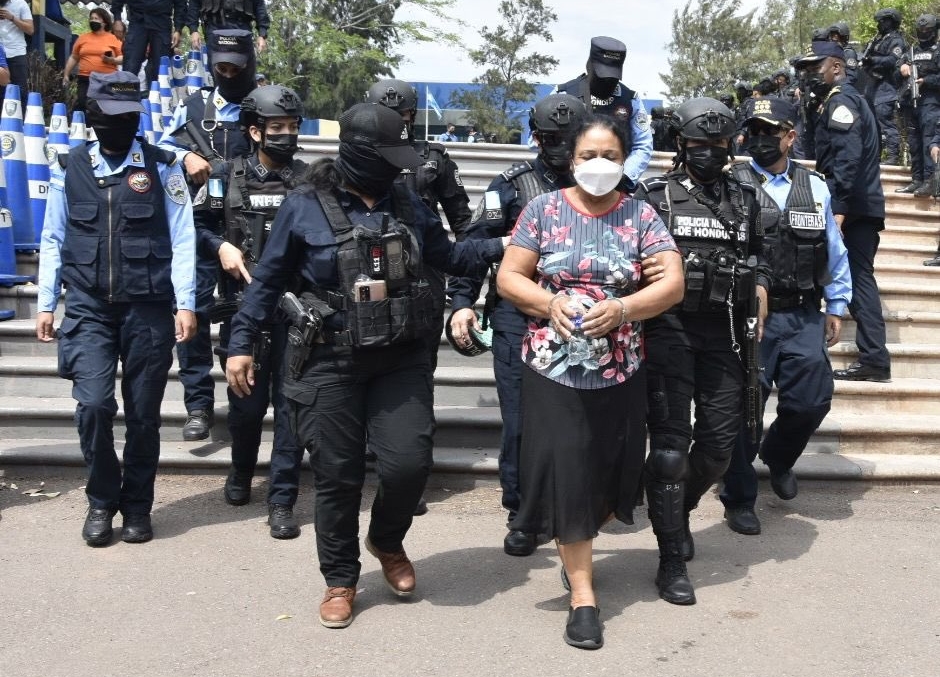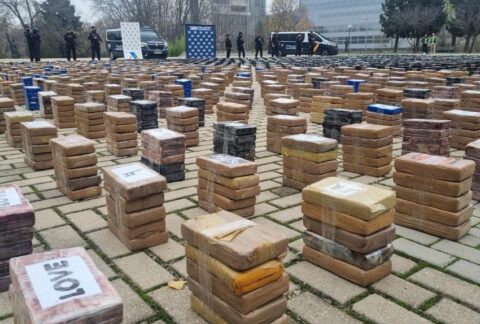In a special operation, agents of the Honduran Special Operations Command and the Honduran National Police’s National Anti-Drug Police Directorate captured Herlinda Bobadilla, alias La Chinda, accused of leading a narcotrafficking cartel in the Caribbean coast of Honduras with her sons, the National Police said.
According to the police report, authorities captured alias La Chinda in a jungle area of the municipality of Limón, Colón department. On May 15, Honduran Nacional Police Director Gustavo Sánchez said that one of her sons, Tito Montes Bobadilla, died during the confrontation. Juan Carlos Montes Bobadilla, another of Herlinda Bobadilla’s sons, remains at large.
“The Montes narcotrafficking organization supplies, imports, transports, and distributes drugs, and launders illicit narcotics proceeds through Central America, Mexico, and the United States,” Ned Prize, the U.S. Department of State spokesperson, said in an early May statement.
Under its Narcotics Reward Program, the U.S. Department of State offered a reward of up to $5 million in exchange for information leading to the arrest or conviction of the leaders of this criminal group. The reward supported the U.S. government’s efforts to combat the destabilizing effects of transnational criminal groups in Central America.
According to the U.S. Department of State, the leadership roles in the organization of Bobadilla and her sons grew since the 2019 arrest and subsequent extradition to the United States of Herlinda Bobadilla’s third son, Noe Montes Bobadilla, who is currently serving a 37-year prison sentence for narcotrafficking.

“The ties she has with her family group do not ensure that they have supremacy over the criminal group. Whoever tries to replace her may or may not be a family member, may or may not be someone close to her,” Misael Rivas Soriano, a Salvadoran security analyst and former dean of the New University San Salvador’s School of Law and Social Sciences, told Diálogo. “They know now that their operation is compromised to the core and they will make changes; I don’t doubt that security agencies, both in the United States and in Honduras, will be prepared for that.”
The Montes Bobadilla extended their operations in the Colón department of the Caribbean coast, an important stopover for cocaine moving through Central America, as it is a “well-established route for cocaine transported by sea, air, and land,” InSight Crime, an organization that studies organized crime in Latin America and the Caribbean, said.
According to Dr. Gustavo Duncan, a professor in the Department of Government and Political Science at EAFIT University in Medellín, Colombia, and a narcotrafficking expert, Honduras continues to be an important transit point for narcotrafficking from Colombia.
“The cartels in Colombia today are very different […]; what we find are private armies located in drug production zones, peripheral areas where there is control of crops, laboratories, and exit routes,” Duncan told Diálogo. “This is part of the dynamic of the Colombian conflict in which the State has been recovering territorial control, so that those who control narcotrafficking can only have influence in remote areas, because the State has strengthened its enforcement capacity.”
Herlinda Bobadilla remains under arrest, while the Honduran government moves forward with extradition proceedings to the United States.









